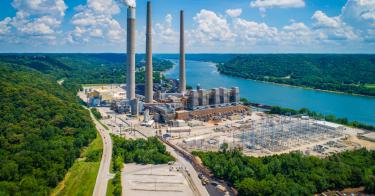In a recent report, “Powering Human Advancement,” The Heritage Foundation laid bare the truth that the driving force behind wealth creation and raising human development standards is the innovative harnessing of energy.
As historian Vaclav Smil sees it, “Energy is the only universal currency.”
Therefore, policymakers should endeavor to allow their citizens abundant access to energy and to the wealth and prosperity it affords.
Unfortunately, government bureaucrats have taken for granted the practical realities that energy abundance has on reducing poverty for its citizens. Subsequently, these policymakers are taking a dangerous path of forced energy scarcity that is deindustrializing countries like Germany.
America cannot turn its back on the energy abundance that made it the most advanced and greatest nation on Earth.
The universal currency of energy provides us with reliable rules-of-thumb for gauging human advancement. In nations with an energy use of only 500 kWh of energy per capita, there is often only subsistence-level agricultural production, and incomes hover around $1,000 per year.
When energy consumption per capita eclipses 10,000 kWh per capita, there is a drastic decline in poverty. At this point, societies tend to have one doctor per 1,000 residents and see a drastic reduction in child mortality. At 20,000 kWh per capita, the people have enough accumulated wealth to begin serious investments towards mitigating air and water pollution.
America exceeded 10,000 kWh per capita around the 1920s. This ushered in a period well remembered for material prosperity that saw the beginnings of mass-electrification and majority access to improved water sources.
By the 1960s, America had eclipsed 20,000 kWh per capita, and the march of progress continued. This period saw near universal access to electricity and sanitized water systems causing infant mortality rates to decline and life expectancy to increase rapidly.
This increase in energy consumption is also directly correlated with improvements in GDP, agricultural productivity, health indicators, and overall human development. In fact, the U.S. saw GDP per capita rise from $4,000 in 1900 to over $60,000 in 2018, a clear demonstration of how increasing energy access drives economic growth and improves living standards.
The American Experiment has thrived as innovators created new businesses and jobs that increasingly harnessed energy with greater efficiency to build our modern wealth of material goods. This new wealth has one source – the intangible value created by the energized innovators and entrepreneurs that push our technological frontiers and expand the dream of tomorrow. It is not the individual innovator that benefits most from their creation, it is the rest of society.
As long as the government does not become captured by special interests, the voluntary exchange of wealth, the exchange of time and skills, allocates toward whoever can solve the scarcity of time the best. This free market, under properly ordered liberty, is the only system that allows individuals and their families to maximize their utility, their pursuit of happiness, and their indirect service to the rest of society through innovative pursuits.
With an energy abundance, the physical toil that defined much of human existence has been alleviated–for which we should be thankful.
As “gratitude is the heart of conservatism,” policymakers should be humble in this time of energy abundance and avoid punishing the creation of wealth, the fruits of easing scarcity for others.
Policymakers must prioritize facilitating the work of innovators and entrepreneurs to discover new methods of harnessing energy and increasing energy access. This is the only true path to accumulating the wealth necessary for human advancement worldwide.
When policymakers create radical energy policy, onerous regulations, and slush funds for favored groups, the resulting progressive corporatism strains our collective confidence in our time-tested marketplaces. The poverty these policies induce doesn’t largely fall on those government bureaucrats or wealthy business owners–it falls on families in the form of high prices, lower wages, and loss of access to products.
If we are to reverse our recent economic malaise and secure our nation for generations to come, policymakers must acknowledge that the innovative harnessing of energy is the driver of prosperity.
Thoughtful and grateful policymakers would be wise to respect the free innovative and entrepreneurial process by heeding the wisdom of the old Greek proverb that “Society grows great when old men plant trees in whose shade they shall never sit.”
This piece is a part of The Heritage Foundation’s Wealth and Innovation project which stands to defend and promote the freedom to innovate, create and use wealth. These are essential to the delicate process by which innovators and entrepreneurs work to build a prosperous and purposeful society.




